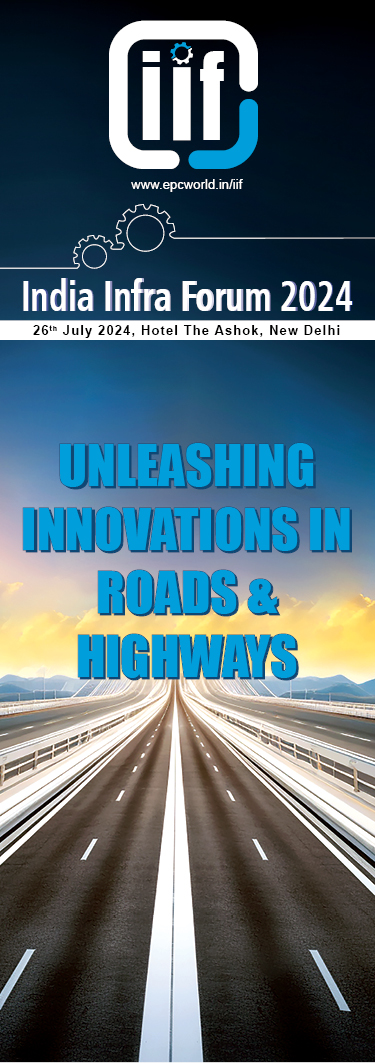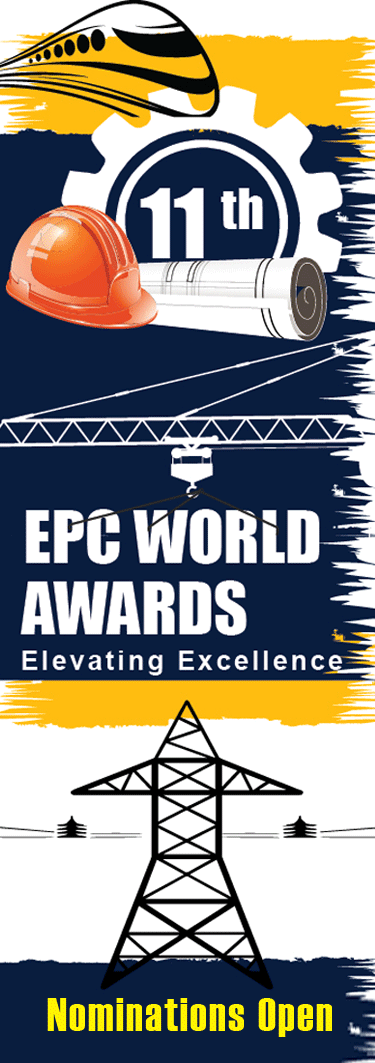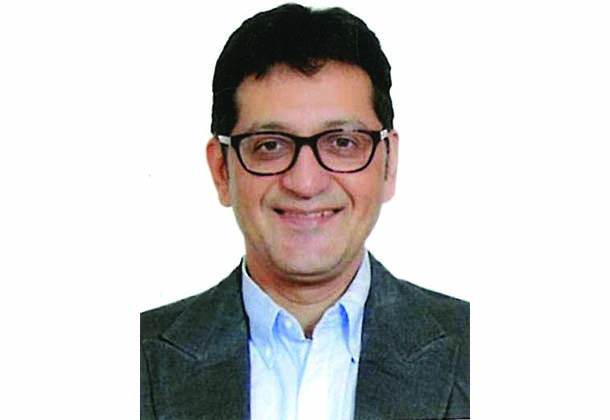We will look at opportunities where there is a serious need to treat or recycle the wastewater, says Soham Mehta, Managing Director, Advent Envirocare Technology
The last four years have seen a slew of announcements for the improvement of infrastructure in the country, including water and wastewater management. How has Advent Envirocare Technology performed in these four years in terms of revenue and technology?
We operate in industrial wastewater space and there have been no significant announcements by the government on this front for past many years. Biggest issue faced by industries all over the country, and regulators alike, is disposal of treated effluent. We do not have large rivers and lakes that have assimilative capacity to handle even properly treated effluents, in a situation where we do not have tight control on the quality and quantity of discharges. Our drinking water comes from those seasonal water bodies that receive water during monsoon, but many of these also receive industrial effluents all year round and that is seriously dangerous, given the poor control. In other words, discharge of treated industrial effluent in surface waters is not an advisable solution for our country. Other option is to discharge into municipal sewers when industries are in vicinity, but that rarely is the case and even then, the municipal bodies are unwilling to accept industrial effluents because of uncertain quality. Regulators discourage discharge on land for irrigation because of various factors like demand mismatch, soil contamination, soil saturation, etc., leaving us with only one viable option, marine discharge deep into the sea where enough dilution is available. That works for industries in the coastal belts, but all those which are inland, face the issue of disposal. This calls for establishing Zero Liquid Discharge (ZLD) plants so that entire wastewater generated by industry is recycled back. Technical solutions are available to achieve ZLD, but they are cost-intensive and not practical for smaller industries. Massive government push is required on this front, be it higher than actual depreciation on capital expenditure and higher than actual deductions on operating expenditure, and at the same time, rationalization in the cost of water supplied to industries or drawn from ground without any control or cost. For smaller industries, establishing ZLD-based centralized treatment facility for clusters is the best solution and the Government needs to facilitate the heavy capital expenditure involved therein. Advent Envirocare is among the leading ZLD plant providers in the country with many challenging projects to its credit. We have been incorporating latest global technologies into our projects to make ZLD both viable as well as reliable. In last four years, we have taken up country’s largest greenfield ZLD project for individual industry as well as country’s largest greenfield ZLD Common Effluent Treatment Plant for a cluster of over 800 small industries.
What are the expertise and technological competence, you offer for water and wastewater management?
We are a company driven by environmental engineering technologies that make our projects cost-effective as well as reliable. We started in 1996 in collaboration with Advent Group of USA, who specialized in industrial effluent treatment. We brought Advent’s advanced biological treatment technology to India and have almost half of its global installations here, from small individual plants to the largest CETP in the country. We diversified later into membrane-based effluent recycling systems, aqueous waste incineration systems and complete Zero Liquid Discharge (ZLD) plants. In 2016, we entered into collaboration with Modern Water plc, UK to jointly develop and commercialize a brine concentration technology that reduces the operating cost of ZLD plants significantly, and now have our first commercial plant successfully on stream. As an EPC company executing projects on LSTK basis we design the technical scheme incorporating ideally suited components as membranes to achieve the quality of highest order.
What are your views on Government’s urban renewal schemes like AMRUT and others?
The Government, of late, is encouraging use of treated municipal sewage as the source of supply of water for industries. While that is a welcome step in certain situations where the sewage is not contaminated with industrial effluents and where the treated sewage does not require an elaborate treatment at the industry end, this concept cannot be generalized. Moreover, the responsibility to meet the quality of treated sewage is also a contentious issue. Industries would want that if use of treated sewage is compelled upon, the onus to meet the quality norms should lie with municipal body while on other hand, the tendering process of municipal bodies often results in incompetent agencies landing up with the contract and resultant compromise on plant performance and treated sewage quality.
How important is water and wastewater management in the development of infrastructure in the country?
Water and wastewater management is crucial for development and to sustain existence in entire geographical expanse as well as for all engines of economy. Agriculture is the largest consumer of water and is fed the best of waters and almost at no price. Wastewater from municipal bodies and industries find their way to rivers and other water bodies after incomplete treatment thereby severely compromising our drinking water sources. There is a dire need to reform the entire water and wastewater infrastructure and to rationalize the tariffs. It is not just roads and railways that build the nations, water and wastewater infrastructure equally do but surprisingly that sector has suffered all along from Government apathy. Advent Envirocare has brought in cost-effective environmental technologies from advanced countries to Indian industries and Common Effluent Treatment Plants (CETPs). We are front runners in recycling of industrial effluents and ZLD systems and strive for the pole position in coming years.
To keep abreast of the competitors a company has to continuously innovate and improve? What are the R&D efforts Advent Envirocare Technology is taking in this regard?
We are obsessed with adopting newer technologies while developing solutions for challenging wastewaters. All throughout of over two decades of our working, we have been using advanced global technologies to provide innovative solutions to a given challenge. In doing so, we make sure that the plants are easy to operate and maintain so that the desired results can be achieved consistently. We have been bold and clear enough to try new technologies directly in our projects, and have also been investing in R&D activities by building pilot scale plants. Recently, we invested heavily in building world’s first prototype plant for membrane-based brine concentration in partnership with Modern Water plc, UK, a technology which drastically changes economics of ZLD projects favourably. Since year 2012, we have been recognized by Deptt. of Scientific and Industrial Research (DSIR) under Ministry of Science & Technology as an approved R&D centre.
With the focus increasingly becoming environment centric with ‘Sustainability’ as the buzz word, where do you see your company and services placed in this wave. Please share your views.
We started in 1996, when the country was just starting to becoming environment-centric and our growth and position itself is a manifestation of us riding the sustainability wave. However, it is still a burgeoning stage and the country needs a lot more of quality infrastructure at both community and industrial levels. With some of the largest projects in our name, we believe the stage is well set for us to take a quantum leap in years to come. We believe that ZLD will be a norm for industrial wastewater in times to come and at the same time, a space will be created for high quality municipal wastewater infrastructure. We will be a force to reckon with in both.
What are the best practices in other countries (Singapore, Israel, the European Union and the US) you would like to see in India?
Privatization and tariff rationalization are the foremost reforms that have to be brought in. The Government’s procurement process and inefficient control has resulted in poor infrastructure and its populism has led to impractical cost of water supply and wastewater treatment. Environmental sustainability cannot come without economic sustainability of that infrastructure.
What will be the company’s growth agenda for the next three years? Is there expansion or new acquisition in the offing?
We will be capitalizing on qualifications and rich experience in industrial effluent treatment, recycling and zero liquid discharge that we have acquired in last few years. We will look at opportunities where there is a serious need to treat or recycle the wastewater and shall offer value in terms of process knowledge and gamut of advanced technologies. For large projects, we are also looking at taking up comprehensive operations and maintenance of facilities that we build or upgrade since we have often seen well designed plants performing poorly because of lack of skill and expertise so necessary to extract effective performance. We will also venture into municipal sewage reuse projects if industries or industrial associations are championing them. At the same time, we are also eyeing diversification into smaller waste-to-energy projects as the recent policy by the Government to support the tariffs for power generated by such projects makes them viable. We are also excited about the opportunity that our brine concentration technology presents for seawater desalination project, whereby we can increase the water recovery from usual 40% to 75% for a fixed intake. While doing all these, like we have always done, we will be scouting for and investing in newer technologies those make sense in Indian market.
@EPC World Media






